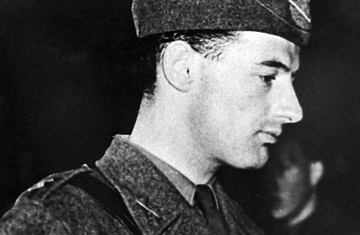
Raoul Wallenberg
(2 of 3)
But researcher Berger says that the truth over whether or not Wallenberg was a spy is less important than the fact that the Soviets probably perceived him to be one in a postwar climate of paranoia as Moscow braced for a Western attack on the Soviet Union.
Hungarian security official Karoly Remenyi, who defected to the West in the early 1980s, testified that he had been involved in planning a show trial in Budapest in 1953 (a plan abandoned after Stalin's death) that had intended to prove a Jewish-Zionist plot against communism — a trial that Remenyi said his Soviet interlocutors had given him to understand would involve Wallenberg, some six years after the Soviets officially claim he died.
Remenyi's is far from the only account suggesting that Wallenberg may have lived beyond his official date of death. Over the decades, there have been a plethora of anecdotes from former Gulag inmates who claimed to have seen, heard of, or communicated with Wallenberg in various Soviet prisons after 1947. According to Berger, a Swedish doctor reports having been privately informed during a medical convention in Moscow in 1961, by a ranking Soviet cardiologist, that Wallenberg was alive but ailing in a psychiatric hospital.
Researchers believe that the truth of Wallenberg's fate may lie in his prison file, of the type created for all inmates of the Soviet penal system. Countless researchers, including a Swedish-Russian Working Group that labored from 1991 until 2000 to find traces of Wallenberg in Russia, have failed to win access to this file, and other records they consider crucial, such as the files on certain prisoners and officials who figure into the Wallenberg story, and also logistical information such as prison guard logs, prisoner transport manifests, and information on occupancy in the Vladimir Prison, where Wallenberg may have been incarcerated in the 1960s.
The report issued by the Swedish-Russian Working Group in 2000 listed 17 questions that need to be addressed by the Russian government before Wallenberg's fate can be determined. In the eight years since, not a single question has been answered.
"I don't buy that [the Russians] don't know," says researcher Mesinai. "I do buy that they have a complexity of reasons for not producing the files" that would solve the mystery. According to Marvin Makinen, a University of Chicago Professor who was a member of the Swedish-Russian Working Group, the Russians could be holding back because the truth about Wallenberg may still be dangerous.
